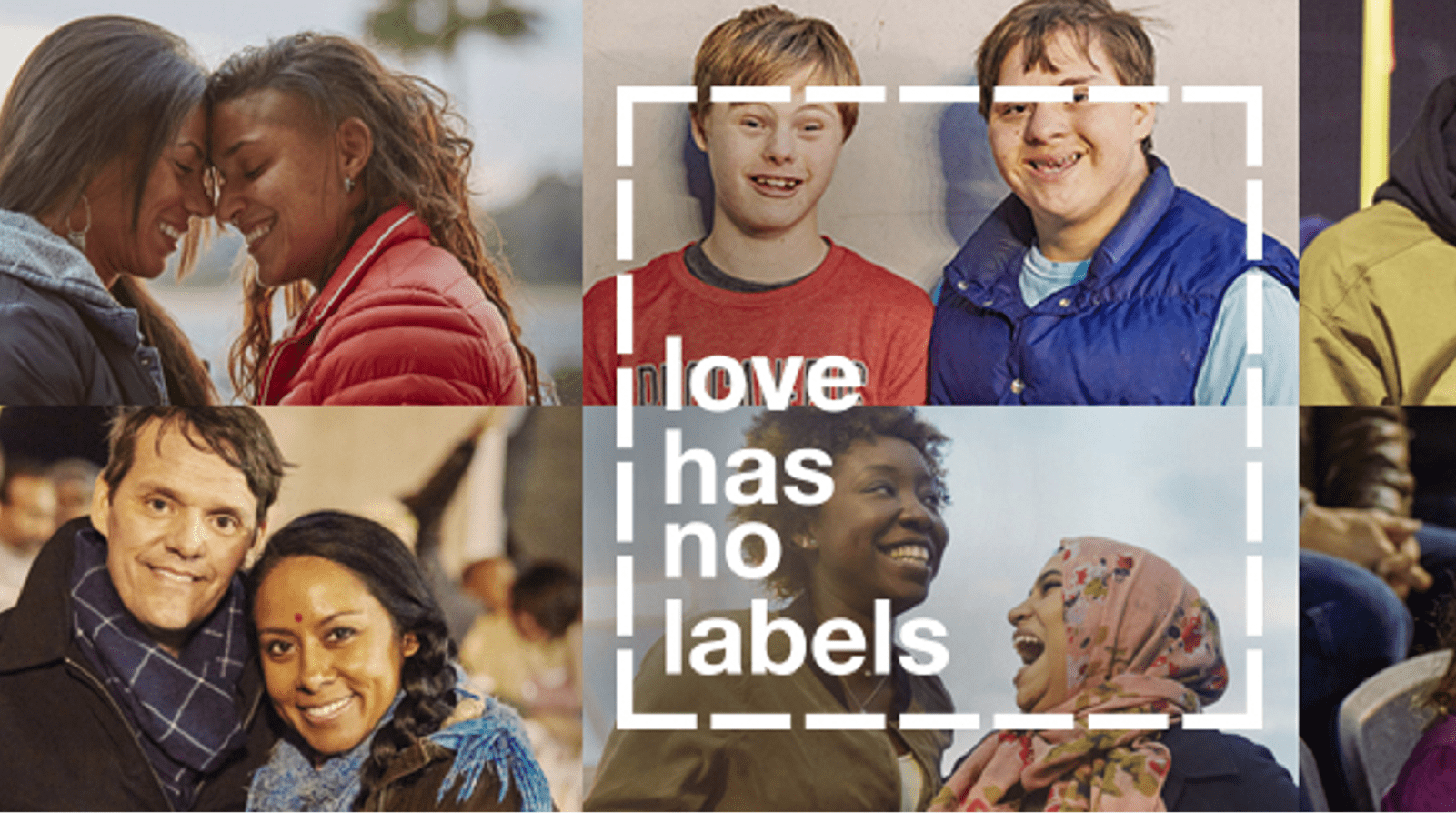The goal was to get people to “rethink your bias.”
Implicit bias is an issue that is deeply ingrained in society and in each of us. It doesn’t mean you aren’t respectful and caring — you just may lack the comprehension to identify how situations involving implicit bias impact individuals and groups. But knowledge is power. This was the goal of the Love Has No Labels campaign, a project from the Ad Council. To promote inclusion and reduce prejudice by combatting bias with love. The Ad Council is a private, non-profit organization that delivers critical messages to the American public by using talent from within the advertising and media industries.
For this campaign, the goal was to get people to “rethink your bias.” Our role was to develop and execute a comprehensive social media strategy and program to drive engagement. The result? A content series that flooded culture with diverse images of love to normalize them. We wanted audiences to have an “ah-ha” moment. This meant we needed to engage with them through distinct and ongoing conversations that “nudge” behavior incrementally towards desired outcomes.
The first example was ‘Fans of Love’ — a new PSA filmed live at the NFL Pro Bowl in Orlando where the traditional jumbotron kiss cam was replaced with an unbiased camera that celebrated all forms of love: between friends and family, and romantic love — across race, religion, gender, sexuality, ability and age. A second campaign, a film series launched on Veterans Day, introduced viewers and service members from various backgrounds to show that there isn’t one archetypical veteran. A third leg of the campaign, “The League of Extraordinary Humans,” debuted at the gaming culture festival, PAX West. A mobile geo-location game featured a diverse group of everyday heroes fighting for love and inclusion, which included competitive gamer Mike Begum, aka ‘BrolyLegs’, transgender advocate Jazz Jennings, and long-distance swimmer Diana Nyad.
Since its launch, millions of people have interacted with Love Has No Labels content. The campaign’s videos have been viewed over 300M times. There have been over four million sessions on the website, where visitors are offered a quiz to examine their own personal biases. And the campaign resulted in significant shifts in key attitudes and behaviors with more adults reporting that they believe they can create a more inclusive and accepting environment. By reframing how we look at love, this work helped to decrease bias and promote inclusion. One person at a time. If that’s not love, then what is?
